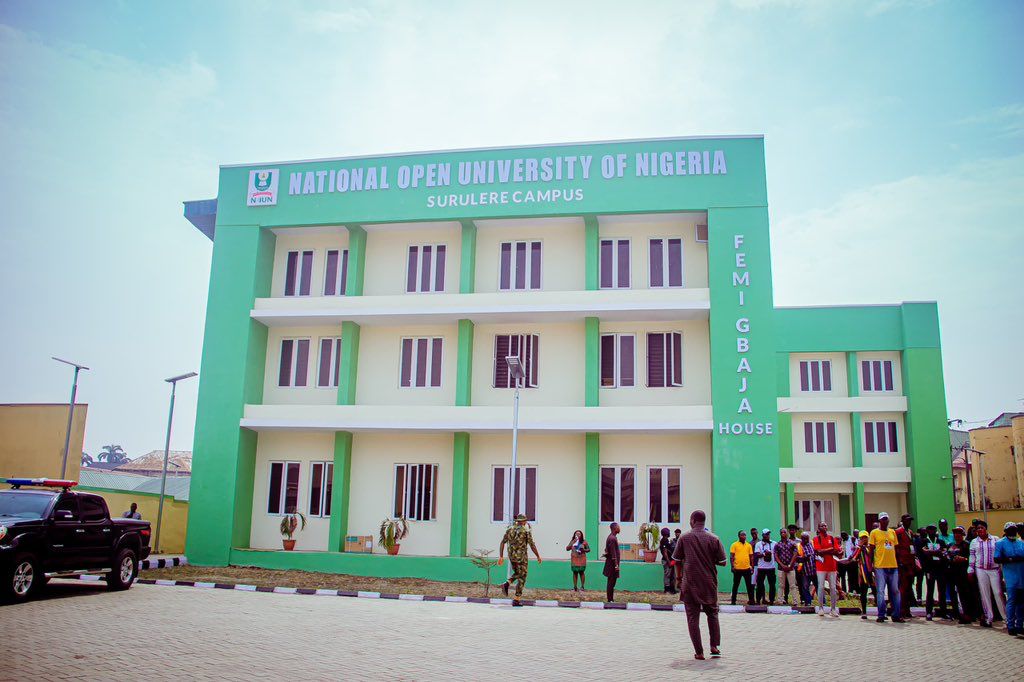
2024 is a significant year. It follows the general elections, with most electoral disputes settled and fewer distractions for public officers. President Bola Tinubu and his cabinet must begin effecting the renewed hope he promised Nigerians while pursuing the country’s top job.
This is also a significant year for Tracka, as we will celebrate a decade of monitoring and reporting on government projects across Nigeria. This is a milestone in our journey of getting down in the trenches and dungeon, weaving through arrows and blows to bring Nigerians to realise that they can play an active part in delivering good governance in their communities.
This article addresses government stakeholders (legislators, governors, staff of Ministries, departments and agencies and the President himself). In the past ten years, we have discovered common pitfalls recurring in the project delivery process, resulting in underdelivery, abandonment, or non-execution.
The government must realise that the primary vehicle through which it can deliver its social contract to Nigerians, especially in these grim times, is the MDAs managing the execution of projects. Aids and cash disbursements to the poor are only a facade. The sustainable economic dividends lie in the effective delivery of those roads, schools, primary health centres (PHCs), electricity and other projects outlined in the 2024 FG and subnational budgets.
Here are the seven shortcomings the government must address for the effective implementation of the 2024 FG Budget:
- Interference in the implementation of projects by legislators:
Over the years, federal legislators have perfected the practice of actively influencing the activities of MDAs in the execution of projects under the guise that the projects are domiciled in their constituencies.
Interference is often seen in implementing empowerment projects, mostly diverted to reward party loyalists and friends. Some legislators also style themselves as the donors of projects funded by public treasury and deface such programmes with their names and pictures for political scores. Click HERE to see a thread we did on the perpetrators of this act.
While legislators are permitted to carry out oversight functions to ensure that the projects delivered are top-notch and poised to serve the people, they must remain within these boundaries of the rule of law. Legislators should refrain from meddling in the execution processes to enable MDAs to maintain independence in carrying out their functions regarding project execution.

2. Awarding contracts to beneficial owners & incompetent contractors:
In the 2022 FG budget, Senator Aisha Binani nominated the construction of an exam hall in Government Day Secondary School, Luggerre, Adamawa, in her Senatorial district. This project was under the Universal Basic Education Commission and was awarded to Binani Publishing Ltd, a company where she is a director.

A clear case of beneficial ownership with a legal infraction. This infraction breaches the Code of Conduct Bureau and Tribunal Act, 2004. Specifically, S.5 of the Act relating to ‘Conflict of Interest with Duty’. The anti-graft agencies should pursue a case like this and prosecute to set an example for future erring public officers.

The second part: over the years, many projects have been awarded to contractors without the expertise and wherewithal to execute them. Clothing companies are awarded road construction projects, restaurants are tasked with building schools, and engineering companies are contracted to distribute pads, amongst many others. What due procurement process would award the construction of a road to a clothing venture?
MDAs are exploiting loopholes, skipping due process and making a mess of the project execution process. It is now a tender-preneur system, where the projects are awarded to the highest kickback tender.
To prevent such cases, procurement processes should be independent, thorough, and transparent so the public and anti-graft agencies can avoid embarking on a long road to redress after the deed has been done.
The Federal Government must institute the long-awaited National Council of Public Procurement, as provided for by the Public Procurement Act, 2007. The establishment of the council will check fraudulent practices in the award of public contracts, poor project implementation, sub-optimal budgeting processes, and other manipulations of procurement and contract award processes.
3. Lack of follow-up and proper monitoring of contractor’s activities:
In our tracking activities, we have reported many cases of under-delivery and infractions by contractors. After raising the alarm, we discovered the agencies were unaware of it.
Frankly, agencies are understaffed to properly monitor and manage all the projects they are meant to oversee, with many scattered across different states in the country. This has impeded the evaluation of project delivery processes.
The short-term solution? Agencies should democratise and decentralise information. Publish quarterly reports on their websites containing projects and award details under them (contractor, locations, specifications, amount, etc.) and let the public – media, CSOs, citizens – do the monitoring. Create a feedback loop where citizens can send the evidence and reports of the contractors’ actions and encourage independent reports on projects.
4. Lack of proper handover to communities:
Beyond execution, MDAs are responsible for ensuring a proper handover of projects to communities. In cases where they do not have the direct authority to influence usage, MDAs can serve as a mediator to ensure the project gets to the final beneficiaries.
In 2022, a block of three classrooms was constructed for a primary school in Bauchi, which was in dire need of it. The construction was completed in December 2022, and five months later, it was still locked and unused.

We visited in May 2023 and asked the headteacher why the new classrooms were not in use; they informed us that SUBEB had not permitted them to use them. Right there, we contacted SUBEB to seek permission and enquire if any paperwork was required. SUBEB was shocked that the classrooms had not been in use and immediately ordered their usage.
While we acknowledge a breakdown in communication in such a case, we believe that a little nudge or follow-up by the agency to the SUBEB when they completed the project to ensure its use would have saved the pupils the pain of receiving classes in a dilapidated building for five more months when a solution had been provided.
There are cases like these littered all over the country. Agencies should not see projects as “complete and dump” duty but go the extra mile to ensure the projects get to the ultimate users.
5. Responsiveness to Public Queries and Freedom of Information Requests:
MDAs complain about the distrust and “bad blood” that the media and civil society have towards them, and unfortunately, I agree with them. However, before we proceed, can the MDAs quickly run to their FOI desk and sift through the pile of unattended FOI requests on their table? We can revisit this conversation about “bad blood” when that pile is cleared.
In 2022, we wrote 97 FOI letters to 34 Ministries, Departments, and Agencies and only received eleven responses. That’s an 11% response rate. This issue of unresponsiveness to queries has been over flogged, so we will skip to a solution. To the agency worker or head reading this piece, digitise the process. Contact a web developer to develop a landing page on your website solely for FOI request submissions and responses.
Nigerians can submit FOI requests digitally, and you can review and respond to them in real-time from the comfort of your office and maintain a smooth correspondence with the public on pertinent issues.
You can contact tech companies and civil societies for this OR contact us at BudgIT. We will provide you with this service at no cost (we want to avoid seeing a case of millions of naira being awarded in consultancy contracts to digitise FOI responsiveness in your agency).
6. Assigning Projects to Agencies with the Technical Capacity and Staff Strength to Execute:
One of the primary reasons projects are poorly executed is that the agencies overseeing the process do not have the technical capacity to do so. This results in a litany of poorly implemented projects scattered across the country. The ultimate cost is that the project will break down a few years in. In an inflationary economy like ours, the government will bear multiple folds of the original cost to fix the issues or abandon the project altogether.

As seen in the picture above, the Federal College of Education, Umunze, Anambra, has no business overseeing a technical project such as road construction, especially in Surulere, Lagos. The technical capacity to manage is one question; the distance from the agency’s location to the project location is another. Will the agency staff fly from Anambra to Lagos periodically to oversee the project, resulting in an unnecessary increase in personnel cost?

The flyer above highlights some fundamental projects allocated to ‘incapable’ agencies in the 2023 FG budget. These highlights are a tiny fraction of the anomalies in the budget that contribute to the stunted growth of the country, as capital projects cannot be delivered effectively.
Technical projects should not be assigned to agencies without the mandate and capacity to execute them.
7. Proactiveness in Disclosing Project Execution Details:
Finally, and this is the most important, publish ALL information concerning project execution – funded or yet to be funded. In the near or distant future, the vision is a database where Nigerians can search for information on any publicly funded project and see all the details from the call for tenders to bidders to final award to project execution timeline, specifications, and payment details.
Every six months or annually, publish the details and updates of projects domiciled under agencies. Be committed to accounting for the job Nigerians have placed in your hands.
President Bola Tinubu, issue this directive of transparency and full disclosure to all Ministers, Head of Departments and Agencies and see how many will commit to and actually do the right thing this year because they know Nigerians are watching and will hold them to account.
Tik, Tok, Mr President, you don’t have the time to experiment. You have to get to work. Nigerians are waiting.
Written by Ayomide Ladipo, Head, Tracka.

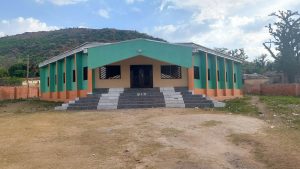
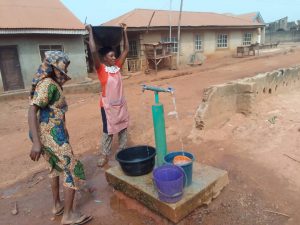

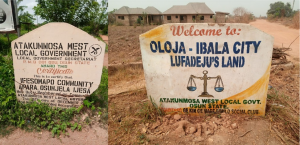
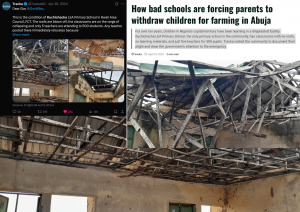
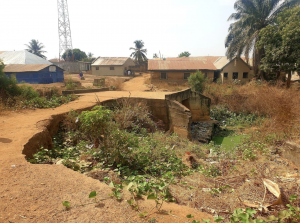

A very good read, Ayomide.
The issues raised here are primary and at the very heart of public projects execution if the question of efficiency is to be taken seriously. I wish this will be read, understood and applied by public/political office holders.
Keep tracking.
Good summary